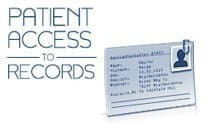Govt hopeful on patient access target

The government is optimistic about meeting its April deadline for patient access to online records, despite January figures revealing that thousands of practices were yet to offer the service.
Health secretary Jeremy Hunt has pledged that all patients who want it will have online access to their GP record by 31 March 2015. The government scaled back the pledge in October 2013, requiring GP practices to provide access to only the brief information held on their Summary Care Record.
The latest official figures, from the Health and Social Care Information Centre, show that at the start of 2015, around one third of practices (2500) had switched on the necessary functionality. Updated figures will not be available until May, after the deadline has come and gone.
However, NHS England director of digital technology Beverley Bryant said the latest preliminary figures suggest around 90% of practices are offering patients access to summary information held in their medical record.
“At this stage we’re optimistic about meeting the target of having 95% of practices providing online appointment bookings, ordering of repeating prescriptions and access to summary information by March 31,” she said.
Dr Paul Cundy, joint chairman of the BMA and RCGP's joint IT committee, told EHI News there are legitimate reasons for not offering online access at all practices and there will not be any repercussions, financial or otherwise, for those that fail to meet the “political deadline”.
“We are not going to get terribly vexed about whether they do or do not meet the deadline. We are not impeding patient access; far from it,” he said.
“Appointments and repeat prescribing access we are enormously supportive of. Online access to detailed records, that’s a completely different thing and it’s better to be late but safe rather than rush in head long and open the floodgates to some very sensitive patient data,” Dr Cundy added.
“If you compare what’s been achieved in general practice with what has been achieved elsewhere, making all these records available within a year is a pretty fantastic achievement.”
Industry sources also suggest the number of practices offering patient access has risen significantly in the run up to the April deadline.
According to the January data, more than 1000 practices, using either INPS or Microtest clinical systems, did not have the functionality to allow patients to view their records online. An INPS spokesman said it started rolling out the service to Vision users in February and “all but a handful of practices” will have their systems configured to meet the target.
A statement from Emis says more than three quarters of its customers are offering records access.
Dr Anant Sharma, a partner at Bilston Health Centre in Wolverhampton, said the practice has experienced no problems since providing patients with online records access and will enable more modules.
“We had our concerns at first, our main fear being that it would lead to patients misinterpreting information and possibly disputing details; scenarios that would ultimately end up putting more demands on practice time and resources, but this hasn’t been the case. It’s been a very positive move,” he said.
Despite thousands of practices offering patient access, the vast majority have no patients enrolled to use it. From a total 57 million patients, around 760,000 were signed up to electronically view their record in January this year.
In the final three months of 2014, these records were accessed 50,000 times.
Dr Cundy said this is evidence that patients are not interested in electronic records access. None of his patients have ever requested it, but use of transactional services such as repeat prescriptions is high.
“GPs are snowed under so online access is not a high priority. The work involved can be quite onerous so we are not saying we should go out and promote it, but deal with it when patients request it.”
Practices must offer access to detailed coded medical records by this time next year, with around 56,000 patients nationwide having access already.
Bryant said NHS England’s focus is to work with patient groups to increase the uptake of online services over the coming year.




